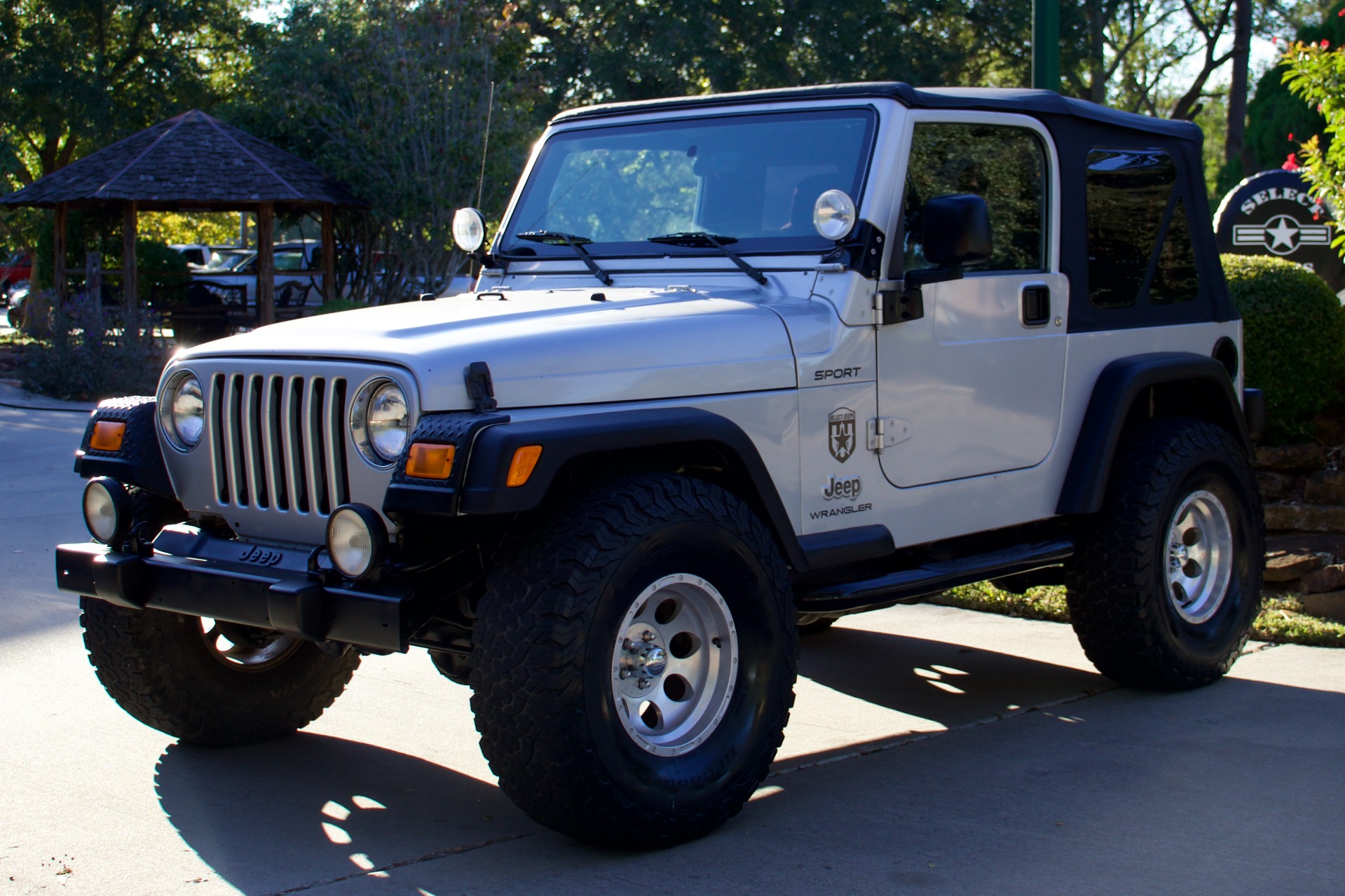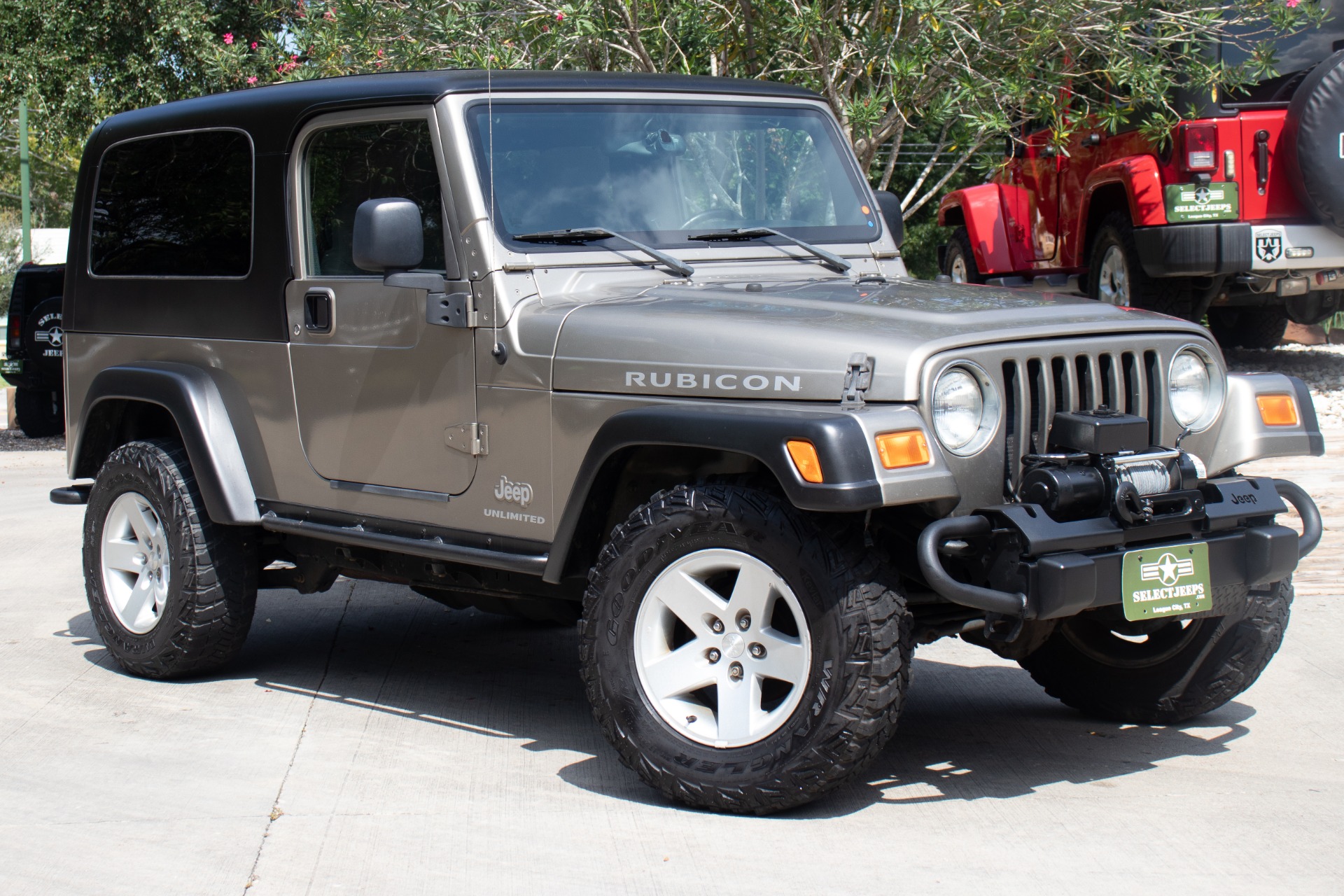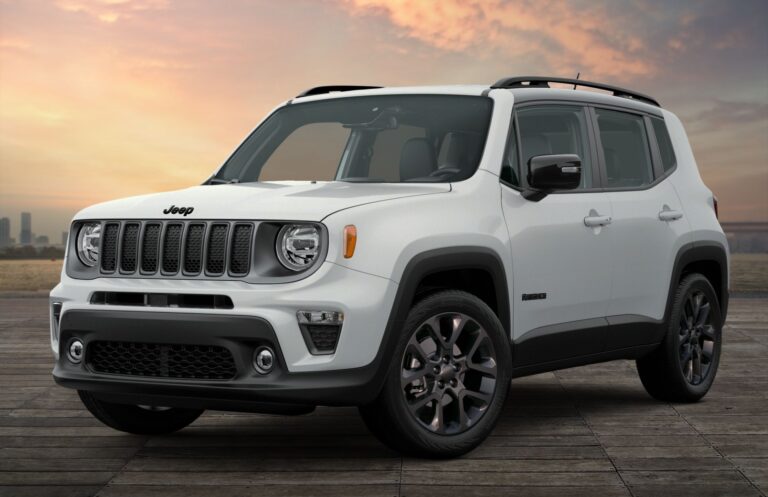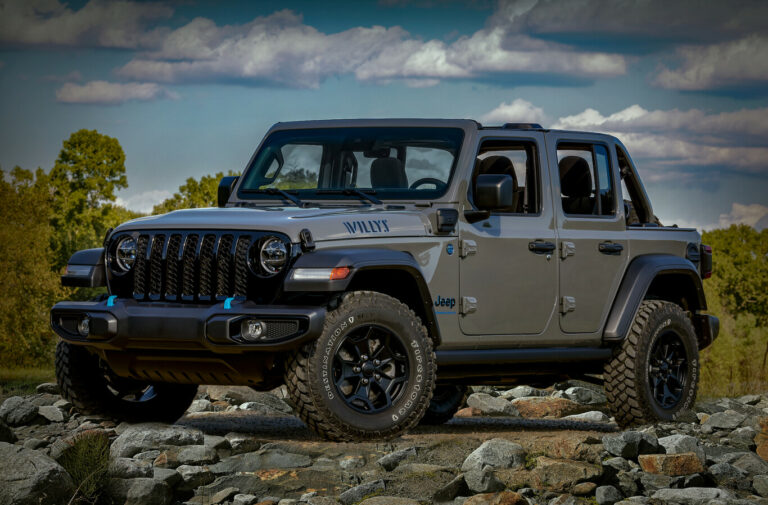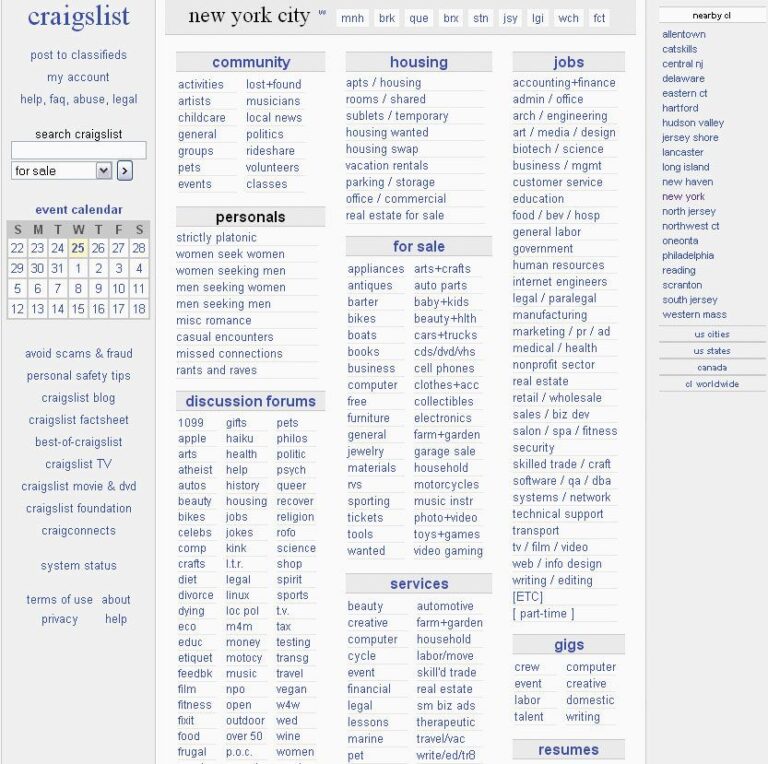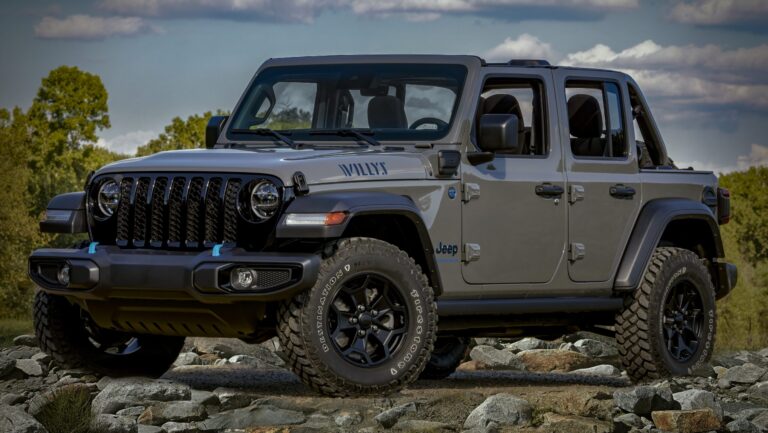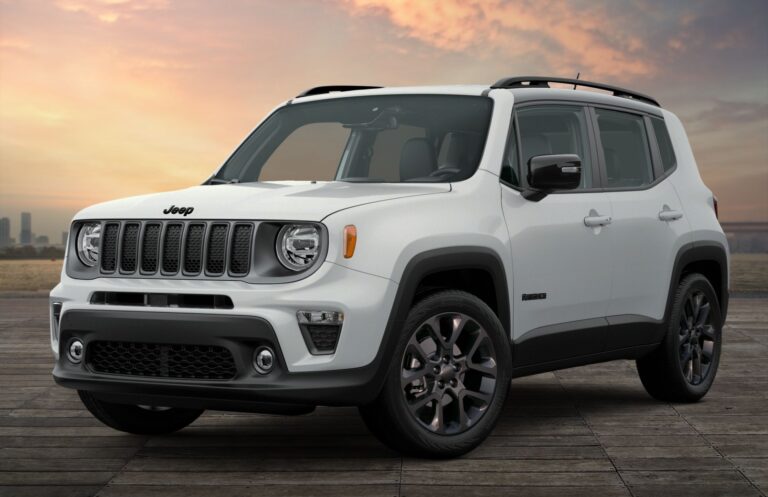Used 2001 To 2005 Jeep Wrangler For Sale In Georgia: Your Ultimate Buyer’s Guide
Used 2001 To 2005 Jeep Wrangler For Sale In Georgia: Your Ultimate Buyer’s Guide jeeps.truckstrend.com
The open road, the call of the wild, and the unmistakable silhouette of a Jeep Wrangler – few vehicles evoke a sense of adventure quite like it. For many enthusiasts, the Jeep Wrangler TJ, produced from 1997 to 2006, represents a pinnacle of the model’s evolution, blending classic ruggedness with modern comforts. Within this beloved generation, the 2001 to 2005 models stand out, offering a sweet spot of refinement and capability. If you’re looking to acquire one of these iconic machines, specifically in the diverse and off-road-friendly state of Georgia, you’re in the right place.
This comprehensive guide is designed to be your indispensable resource for navigating the market for a used 2001 to 2005 Jeep Wrangler in Georgia. We’ll delve into why these particular models are so sought after, explore the unique advantages of buying one in the Peach State, provide a detailed pre-purchase inspection checklist, outline where to find them, and offer insights into pricing and negotiation. By the end, you’ll be well-equipped to find your perfect Georgia trail companion.
Used 2001 To 2005 Jeep Wrangler For Sale In Georgia: Your Ultimate Buyer’s Guide
Why the 2001-2005 Jeep Wrangler TJ? A Deep Dive into its Enduring Appeal
The Jeep Wrangler TJ generation is often considered by purists to be the last "true" Wrangler before the significant size and complexity changes of the JK and JL generations. The 2001-2005 models, in particular, benefit from a few key updates and a proven track record.
The TJ Legacy: Classic Design, Modern Comforts
Introduced in 1997, the TJ brought a significant evolution to the Wrangler line by replacing the leaf spring suspension of its YJ predecessor with a coil spring setup. This transformation dramatically improved ride quality, on-road handling, and off-road articulation, making it a much more comfortable daily driver without sacrificing its legendary capability. The 2001-2005 models refined this further, offering a robust platform that enthusiasts continue to modify and cherish.
Engine Options: Power and Reliability
- The Legendary 4.0L "PowerTech" Inline-Six: This engine is the heart of the TJ’s appeal for many. Known for its bulletproof reliability, ample low-end torque, and ease of maintenance, the 4.0L is highly sought after, especially for off-roading and towing. It’s a workhorse designed to last for hundreds of thousands of miles if properly cared for.
- The 2.5L Inline-Four: While less powerful, the 2.5L engine offers better fuel economy and is perfectly adequate for those who plan lighter use or daily commuting without heavy off-road demands. However, its lower torque output can feel sluggish on highways or steep inclines.
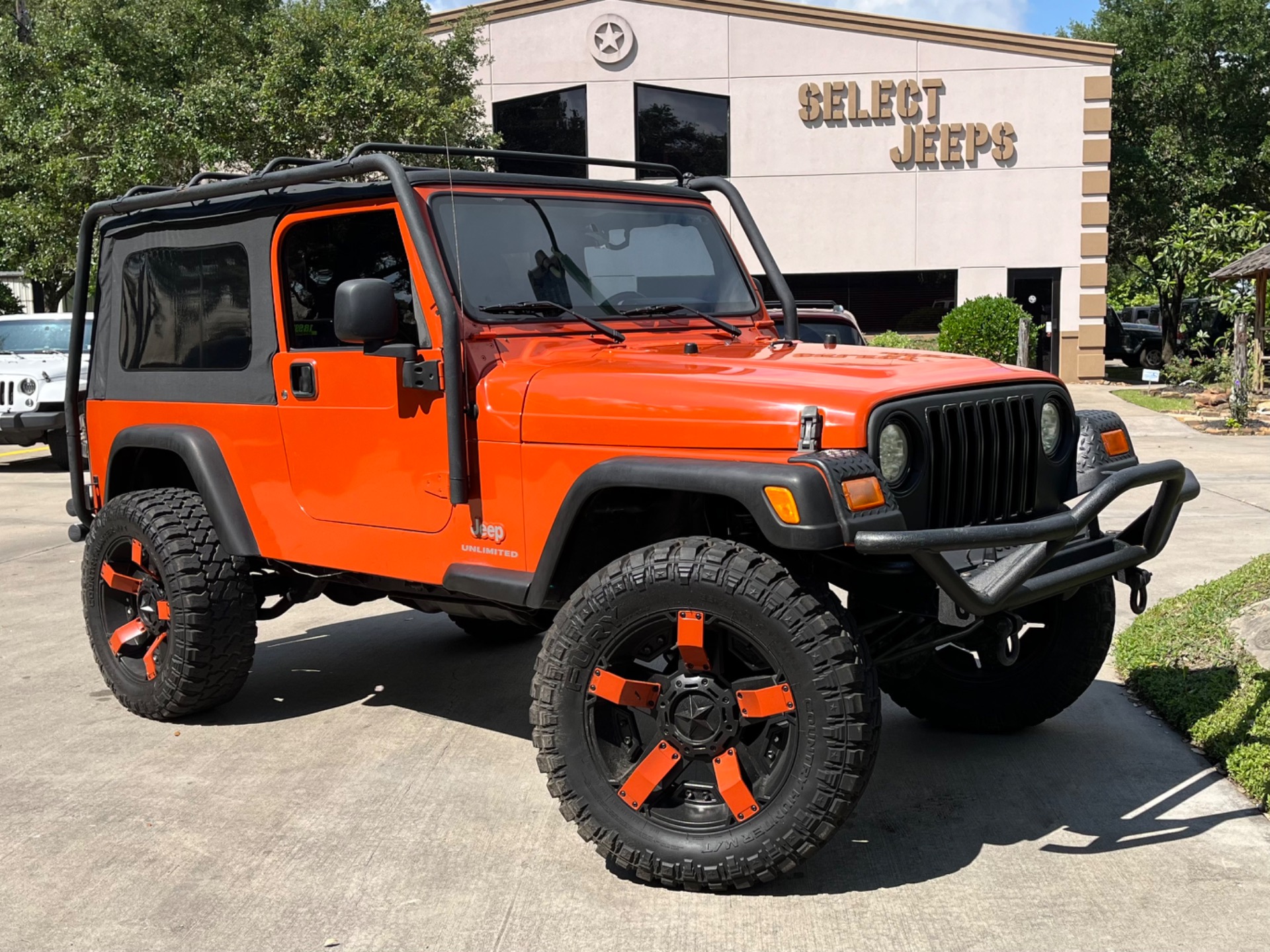
Transmission Choices:
You’ll find TJs with both manual and automatic transmissions.
- Manual: The 5-speed NV3550 (until 2004) and the 6-speed NSG370 (2005-2006) are robust manual options that offer direct control and a more engaging driving experience.
- Automatic: The 3-speed 32RH (until 2002) and the 4-speed 42RLE (2003-2006) provide convenience for city driving and traffic. The 42RLE is generally preferred for its extra gear.
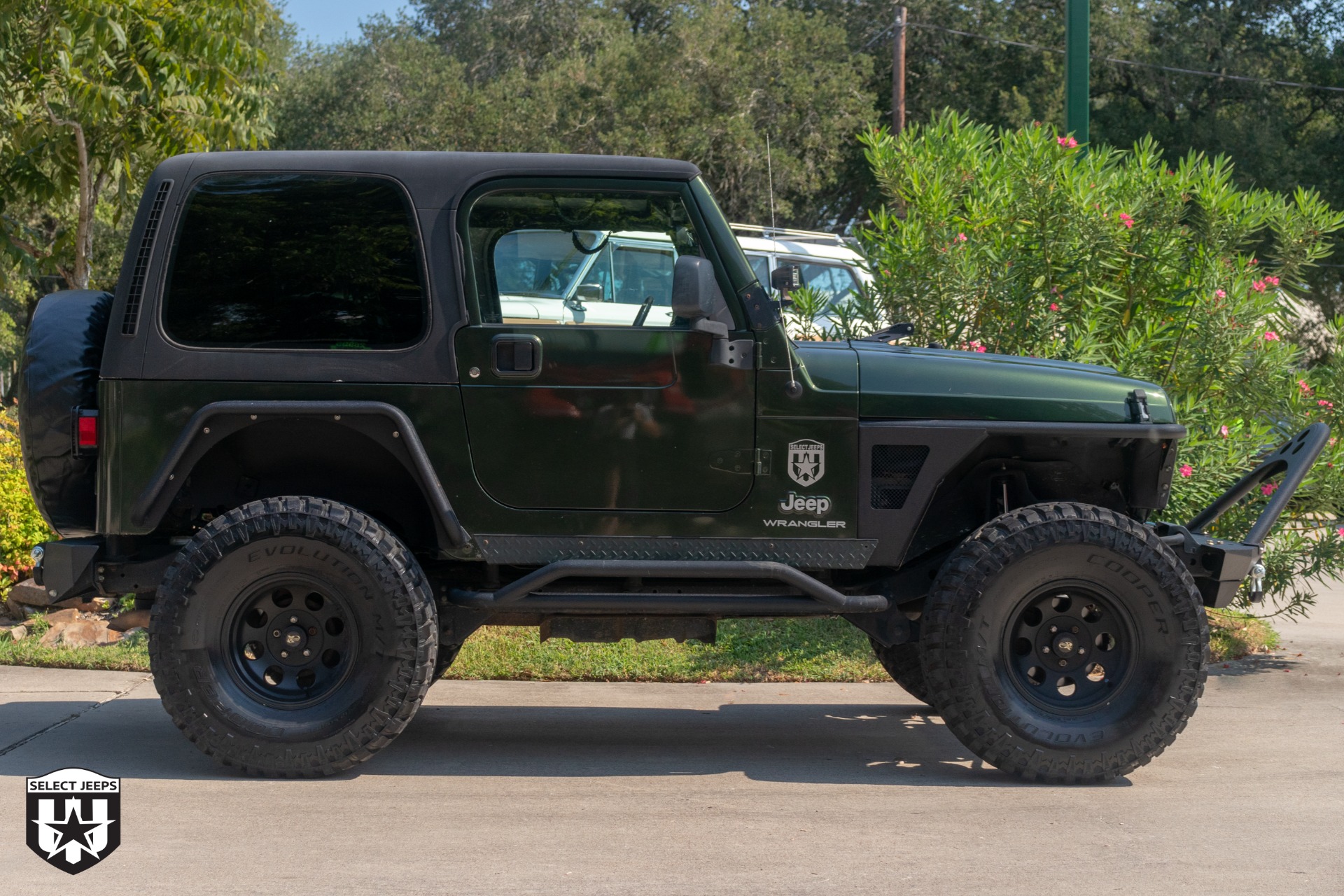
The Coveted Rubicon Model (2003-2005):
Introduced in 2003, the Rubicon trim level is the ultimate factory-built off-roader. It comes standard with Dana 44 axles (front and rear), Tru-Lok electronic locking differentials, a 4:1 low-range Rock-Trac transfer case, and 31-inch tires. These factory upgrades make the Rubicon significantly more capable off-road right out of the box and command a higher price.
Classic Styling and Versatility:
The 2001-2005 TJs retain the iconic round headlights, exposed hinges, removable doors, and fold-down windshield that define the Wrangler’s identity. Coupled with options for hardtops, soft tops, and half doors, the TJ offers unparalleled open-air versatility, perfect for Georgia’s changing seasons.
The Georgia Advantage: Why Buy a TJ Here?
Purchasing a used Jeep Wrangler in Georgia offers several distinct benefits that make it an attractive location for buyers:
- Favorable Climate: Unlike states in the "Rust Belt" with harsh winters and heavy road salt usage, Georgia experiences milder winters. This significantly reduces the likelihood of severe frame and body rust, a critical concern for older vehicles like the TJ. You’re more likely to find a solid, less corroded chassis in Georgia.
- Vibrant Off-Roading Culture: Georgia boasts a thriving off-road community and numerous dedicated off-road parks and trails, such as Beasley Knob OHV Trail, Durhamtown Off Road Resort, and Iron Mountain Park. This active scene means a healthy market for TJs, with many well-maintained and even custom-built examples available from enthusiasts who truly understand these vehicles.
- Availability: Due to the popularity of outdoor activities and the strong Jeep presence, there’s generally a good supply of used Wranglers in Georgia, increasing your chances of finding the right vehicle at the right price.
- Inspection Opportunities: Being able to inspect a vehicle in person, especially one that might have been used for off-roading, is invaluable. If you’re in or near Georgia, you can thoroughly check out potential purchases.
What to Look For: A Pre-Purchase Inspection Guide for TJ Wranglers
Buying a used vehicle, especially a 15-20 year old off-road icon, requires diligence. A thorough inspection is paramount to avoid costly surprises.
1. Rust – Your Number One Priority:
Even in Georgia, rust can be an issue, especially if the Jeep has spent time up north or near the coast.
- Frame: This is the most critical area. Inspect the entire frame, paying close attention to:
- Skid plates: Water and mud can get trapped.
- Control arm mounts: Both upper and lower, front and rear.
- Rear crossmember: Where the bumper mounts.
- Body mounts: Under the tub.
- Behind the front fenders: Look for rot where the frame curves up.
- Tap with a hammer or screwdriver; solid metal should not flake or deform easily.
- Body: Check the floorboards (especially under the carpet and drain plugs), rocker panels, fender flares, the cowl area (under the windshield), and around the tailgate hinges.
2. Mechanical Inspection:
- Engine (4.0L & 2.5L):
- Look for oil leaks (common areas: oil pan gasket, valve cover gasket, rear main seal). Minor leaks aren’t deal-breakers, but excessive ones indicate neglect.
- Listen for unusual noises (ticking, knocking, misfires).
- Check coolant levels and condition.
- Verify the engine starts easily and idles smoothly.
- Transmission & Transfer Case:
- Check fluid levels and condition.
- Test drive: Ensure smooth shifting (manual or auto), no grinding, slipping, or unusual noises.
- Engage 4WD (High and Low) to ensure it shifts properly and without binding.
- Axles & Driveshafts:
- Check for differential fluid leaks.
- Inspect U-joints for play or signs of wear.
- Listen for whining or grinding noises, which could indicate worn gears or bearings.
- Suspension:
- Look for worn bushings, cracked control arms, leaking shocks.
- If lifted, assess the quality of the lift kit installation. Poorly installed lifts can cause alignment issues and premature wear.
- Steering:
- Check for excessive play in the steering wheel.
- Inspect tie rods, drag link, track bar, and ball joints for wear.
- Look for power steering fluid leaks.
- Brakes:
- Check brake fluid levels.
- Inspect rotors for deep grooves and pads for wear.
- Ensure the parking brake holds.
- Tires: Check tread depth and even wear. Uneven wear can indicate alignment or suspension issues.
3. Electrical & Interior:
- Test all lights (headlights, tail lights, turn signals, brake lights), gauges, wipers, HVAC (heating and A/C), and power windows (if equipped).
- Check for water stains in the carpet or headliner, indicating leaks.
- Examine the condition of the seats, carpet, and dashboard.
4. Modifications:
- Be cautious of heavily modified Jeeps unless you understand the modifications. Poorly executed modifications can cause more problems than they solve. Ask for receipts and documentation for any aftermarket parts.
- Consider a pre-purchase inspection by an independent mechanic, especially one familiar with Jeeps. It’s a small investment that can save you thousands.
Where to Find Used TJ Wranglers in Georgia
Georgia offers several avenues for finding your next Jeep Wrangler:
- Online Marketplaces:
- Dedicated Auto Sites: Autotrader, Cars.com, and Edmunds are excellent for finding listings from dealerships and some private sellers.
- General Classifieds: Craigslist (specifically the Georgia regions like Atlanta, Augusta, Savannah) and Facebook Marketplace are treasure troves for private party sales. Search local Jeep groups on Facebook for enthusiasts selling their well-loved TJs.
- Jeep Forums/Enthusiast Sites: Websites like JeepForum.com or local Georgia Jeep club forums often have classified sections where members sell their vehicles.
- Dealerships: Both new car dealerships (taking TJs on trade) and independent used car lots will have Wranglers. While prices might be higher, they often offer financing, warranties (limited), and some level of reconditioning.
- Private Sellers: Often the best value. You can negotiate directly with the owner, ask detailed questions about the vehicle’s history, and potentially get a better price than from a dealer. However, sales are typically "as-is," so your due diligence is crucial.
- Auctions: Public auto auctions or government surplus auctions can yield good deals, but they are high-risk. Vehicles are sold sight unseen or with very limited inspection opportunities.
Pricing and Negotiation Strategies
The price of a used 2001-2005 Jeep Wrangler in Georgia can vary significantly based on year, mileage, trim level, condition, modifications, and whether it’s a hardtop or soft top.
Factors Influencing Price:
- Year & Mileage: Newer TJs (2004-2005) with lower mileage command higher prices.
- Trim Level: Rubicons are significantly more expensive than Sport or Sahara models due to their factory off-road upgrades.
- Condition: A well-maintained, rust-free TJ with a clean interior will fetch a premium.
- Modifications: Quality modifications (e.g., reputable lift kit, aftermarket bumpers) can add value, but poorly done mods or extreme modifications can detract.
- Hardtop vs. Soft Top: Hardtops are generally more desirable and add value, especially if they are color-matched.
Research and Negotiation Tips:
- Market Research: Use resources like Kelley Blue Book (KBB.com), NADA Guides, and Edmunds to get estimated values. Crucially, look at actual recent sales data for similar TJs in Georgia on sites like eBay Motors (completed listings) or Facebook Marketplace.
- Be Prepared to Walk Away: This is your strongest negotiation tool.
- Point Out Flaws: Use any discovered issues (minor rust, worn tires, small leaks) to justify a lower offer.
- Have Financing Ready: If you need a loan, get pre-approved before you start shopping. This gives you leverage and a clear budget.
- Consider a Pre-Purchase Inspection: If the mechanic finds issues, you can use their report to negotiate the price down, or decide to walk away from a problematic vehicle.
Estimated Price Range for 2001-2005 Jeep Wrangler in Georgia
Please note that these are estimates and actual prices will vary greatly based on the specific vehicle’s condition, mileage, and market demand at the time of sale.
| Year | Trim Level (Common) | Condition (Fair) | Condition (Good) | Condition (Excellent/Rubicon) | Notes |
|---|---|---|---|---|---|
| 2001 | Sport/Sahara | $6,000 – $8,000 | $8,500 – $11,000 | $11,500 – $14,000 | Older 4.0L, 3-speed auto often lower |
| 2002 | Sport/Sahara | $6,500 – $8,500 | $9,000 – $11,500 | $12,000 – $14,500 | Last year for 3-speed auto, NV3550 manual |
| 2003 | Sport/Sahara | $7,000 – $9,500 | $9,500 – $12,500 | $12,500 – $15,500 | First year for 4-speed auto, Rubicon introduced |
| 2003 | Rubicon | $12,000 – $15,000 | $15,500 – $18,500 | $19,000 – $23,000+ | High demand, factory lockers & Dana 44s |
| 2004 | Sport/Sahara | $7,500 – $10,000 | $10,000 – $13,000 | $13,000 – $16,000 | Very similar to 2003 models |
| 2004 | Rubicon | $12,500 – $15,500 | $16,000 – $19,000 | $19,500 – $24,000+ | Continued popularity for off-roaders |
| 2005 | Sport/Sahara | $8,000 – $10,500 | $10,500 – $13,500 | $13,500 – $16,500 | First year for 6-speed manual (NSG370) |
| 2005 | Rubicon | $13,000 – $16,000 | $16,500 – $19,500 | $20,000 – $25,000+ | Highly sought after, last year of TJ Rubicon |
- Note on "Fair" Condition: May have significant cosmetic flaws, some minor mechanical issues, or higher mileage.
- Note on "Good" Condition: Average mileage, minor cosmetic wear, well-maintained mechanically.
- Note on "Excellent" Condition: Low mileage for the year, minimal wear, potentially rust-free frame, full service records.
Post-Purchase: Getting Your TJ Ready for Georgia Roads (and Trails)
Once you’ve found and purchased your 2001-2005 Jeep Wrangler in Georgia, a few steps will ensure it’s ready for adventure:
- Immediate Maintenance: Even if the seller provided records, it’s wise to perform basic maintenance: oil change, filter replacements (air, oil, fuel), spark plugs, and check all fluid levels and conditions (coolant, brake fluid, power steering, differential fluids).
- Safety Check: Double-check brake pads, rotors, tire pressure, and all lights.
- Registration & Complete the title transfer and vehicle registration with the Georgia Department of Revenue’s Motor Vehicle Division. You’ll need a Georgia driver’s license, proof of insurance, and the signed title.
- Insurance: Get your new (to you) Jeep insured before hitting the road.
- Responsible Modifications: If you plan to modify your TJ, research quality parts and consider professional installation, especially for suspension or drivetrain components. Start with practical upgrades like better tires or recovery gear.
- Join the Community: Georgia has a vibrant Jeep community. Look for local Jeep clubs, online forums, and meet-ups. These are great resources for advice, group trail rides, and making new friends.
Frequently Asked Questions (FAQ)
Q1: Is the 4.0L engine truly reliable?
A1: Yes, the 4.0L "PowerTech" inline-six is renowned for its incredible durability and longevity. With regular maintenance, it’s common for these engines to exceed 200,000 or even 300,000 miles. Minor oil leaks (valve cover, rear main seal) are common but usually manageable and not indicative of a major problem.
Q2: What’s the biggest rust concern on TJs?
A2: The frame, specifically the sections near the control arm mounts, the rear crossmember, and under the skid plates, is the biggest concern. Rust here can compromise the structural integrity of the vehicle. Body rust on rocker panels and floorboards is also common.
Q3: Should I get a hardtop or soft top?
A3: This depends on your preference. Hardtops offer better insulation, security, and quieter highway driving. Soft tops provide the ultimate open-air experience and are easier to remove/store. Many TJs come with both, but if you have to choose, consider your primary use. In Georgia’s climate, a hardtop can be nice for hot summers and cooler winters, but a soft top is perfect for quick open-air enjoyment.
Q4: What’s the fuel economy like for a TJ?
A4: Don’t expect great fuel economy. The 4.0L engine typically gets 15-18 MPG combined, while the 2.5L might get slightly better at 17-20 MPG. Heavy tires, lift kits, and aggressive driving will further reduce these figures.
Q5: Are TJs good daily drivers?
A5: They can be, but they are not as refined as modern SUVs. They have a short wheelbase, solid axles, and a higher center of gravity, which means a less comfortable ride, more road noise, and less precise handling compared to a car. However, for many, their rugged charm and versatility outweigh these compromises.
Q6: How much should I budget for maintenance?
A6: As an older vehicle, budget for regular maintenance and potential repairs. Beyond oil changes and routine items, expect to replace wear-and-tear components like brakes, suspension bushings, and U-joints. An annual budget of $500-$1000 for maintenance and minor repairs is a reasonable starting point, more if major components need attention.
Q7: Is it worth buying a Rubicon model?
A7: If you plan on serious off-roading, absolutely. The factory Dana 44 axles, lockers, and 4:1 transfer case are significant upgrades that would cost thousands to add to a Sport or Sahara. For casual use or light trails, a Sport or Sahara is perfectly capable and often a better value.
Conclusion
The 2001 to 2005 Jeep Wrangler TJ remains a highly desirable vehicle, celebrated for its robust construction, legendary off-road prowess, and timeless appeal. For buyers in Georgia, the milder climate and active off-roading community present an excellent opportunity to find a well-preserved example of this iconic machine.
By following the detailed inspection guidelines, understanding the nuances of the market, and employing smart negotiation strategies, you can confidently navigate the buying process. Remember that patience and thoroughness are key. Finding a rust-free, mechanically sound TJ will ensure years of reliable service and countless adventures, whether cruising Georgia’s scenic backroads or tackling its challenging off-road trails. Your perfect open-air companion is waiting – go find it and embrace the Jeep lifestyle!
